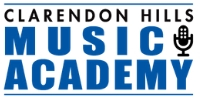Unlock Your Child’s Brain Power: How Music Lessons Boosts Learning, Language, and Lifelong Skills!

So, your kiddo might not be the next American Idol, but that's okay because they can still gain a ton from learning music! You see, learning to sing or play a musical instrument actually does wonders for their brain, beyond just being able to rock the alphabet.
Brain Booster
Research has shown that getting into the groove of music helps kids learn other subjects and improve skills they use in all areas of life. Basically, singing, dancing, and jamming to tunes are like a super-brain booster for kids as they start more formal learning.
Playing music is like a workout for the brain. Kids have to use their ears, eyes, and muscles – big and small – all at the same time. Music isn't just about becoming the next Mozart; it's more like a super fun, brain-enhancing activity.
Talk About Language Skills
From ages two to nine, kids' brains are primed for language development. And guess what? Music helps with that, too! Growing up surrounded by music is great for boosting language skills, but it's essential to practice and celebrate those abilities, either at home or in a more structured setting.
Recent studies show that musical training helps develop the part of the brain responsible for processing language. Plus, connecting familiar tunes to new info makes it easier for young minds to remember stuff.
Being a social butterfly also goes hand in hand with language development, and music can help with that. As Dr. Kyle Pruett, a child psychiatrist and musician, says, "Musical experience strengthens the capacity to be verbally competent."
A Little Boost in IQ
Did you know that music lessons can give kids a small IQ bump? One study found that six-year-olds who had weekly voice and piano lessons scored three IQ points higher than kids who didn't. And while drama lessons didn't have the same IQ effect, they did improve social behavior.
Brains on Music
Musicians' brains – even young ones – work differently than non-musicians. Kids involved in music have more neural activity, which means when they're playing an instrument, they're using more of their brain.
In a study, children who had 15 months of weekly music instruction and practice showed improved sound discrimination, fine motor tasks, and changes in their brain networks. How cool is that?
Spatial Smarts and Better Test Scores
There is a link between music education and spatial intelligence, which is essential for activities like solving arithmetic problems and making video games, according to research. Children are exposed to spatial-temporal activities during music classes, which improves their spatial abilities and cognitive flexibility. Since music instruction fosters the development of cognitive skills including attention, memory, and problem-solving ability, scores on tests in English and arithmetic are raised as a result.
Memory Masters
Engaging in music training, like learning to play the piano, offers various cognitive benefits for children, including enhanced verbal memory. This occurs because mastering an instrument involves processing, interpreting, and memorizing auditory, visual, and motor elements, which stimulate the brain and strengthen neural connections associated with memory and learning.
Research indicates that musical training can lead to structural and functional changes in the brain, specifically in areas responsible for language, memory, and auditory processing. Consequently, children who undergo music training may find it easier to excel in subjects like history, where the ability to memorize dates, names, and events is crucial to academic success.
The Real Deal
While music can improve your child's learning and other skills, don't expect it to turn them into a genius overnight. The real benefits of music education include discipline, learning a skill, being part of the music world, and the process of learning an instrument or singing.
“Music makes your kid interesting and happy, and smart will come later,” says Pruett. The main reason to expose your child to music is to help them become more musical, appreciate all aspects of music, and respect the learning process.
As Rasmussen, an expert in early childhood music, says, "The benefit of music education for me is about being musical... Your understanding of art and the world, and how you can think and express yourself, are enhanced." So, let your kids embrace their inner rock stars, and watch their brains grow!
Music has the power to enhance learning in profound ways, and at Clarendon Hills Music Academy, we understand this better than anyone. Studies have shown that learning to play an instrument can improve cognitive function, memory, and creativity, and can even help to develop important social and emotional skills.
By joining the Clarendon Hills Music Academy community, you or your family member will have the opportunity to explore these benefits firsthand. Our expert instructors are dedicated to helping students discover their unique musical talents and achieve their full potential. Through our tailored lessons, you'll not only develop your musical skills but also enhance your overall learning abilities.
So if you want to take your learning to the next level, consider joining us at Clarendon Hills Music Academy. We can't wait to help you discover the transformative power of music!
If you want you or a family member want to try a lesson with Clarendon Hills Music Academy, simply text "Learning" to 630-98-MUSIC or Click Here to sign up for a trial session!
